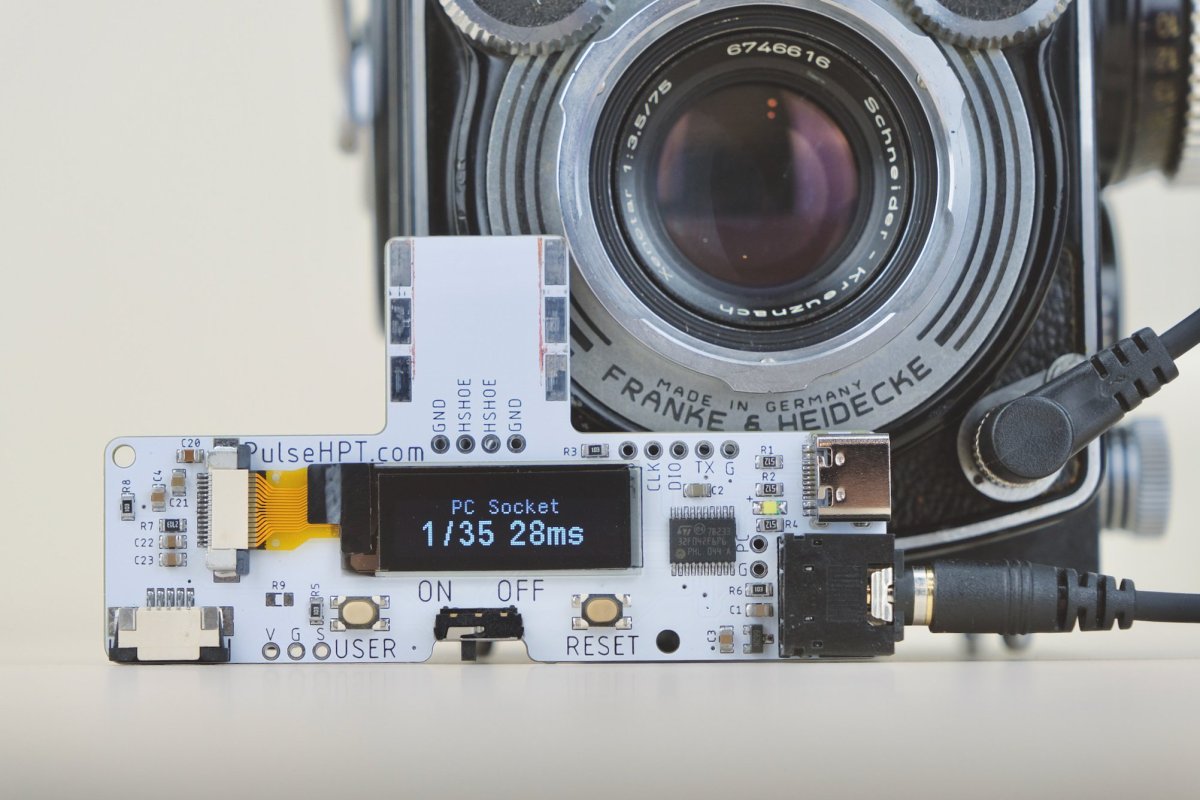I can see the allure of vintage photography. There are heaps of beautiful machines out there attached to gorgeous pieces of glass that are capable of creating amazing images. I’ve dabbled in vintage lens conversion to modern mirrorless and a little vintage point-and-shoot on 35mm but I’ve often wondered how people approach the more esoteric older systems. One part of the puzzle is assessing the actual shutter speeds that vintage cameras attain, which is crucial to getting the correct exposure for your shot. The PulseHPT 3-in-1 shutter speed tester gives you 3 brilliant approaches to characterising an older shutter’s speed.
The first two tools it offers utilise the fact that many vintage cameras synchronise the flash firing mechanisms with the shutter. Therefore if you can measure the length of the flash firing you know the shutter speed. If your vintage camera uses a hot shoe mount for a flash system, you simply plug the PulseHPT into the hot shoe and fire the shutter and the onboard OLED screen displays the shutter speed. The second method is the same but uses an optional extra 3.5mm jack to PC socket. The PC socket in this case refers to another type of flash synchronising connector that was popular in lots of cameras from the 1950’s onwards. Again you plug the PC cable into the camera and the jack into the PulseHPT and fire the shutter to see the shutter speed on screen.
Finally, the 3rd tool is perhaps the most versatile in that you add a light sensor onto the kit (sold as an optional extra) and position the light sensor behind the shutter and a bright light source in front of the lens. You then fire the shutter to take an accurate reading. Over on the documentation page you can see nice examples of these different methods being used, as well as some lovely vintage cameras!
Supplied fully assembled the unit will run for 20 hours on a CR2032 battery and the unit also has a USB connector if any firmware updates are required in the future.







